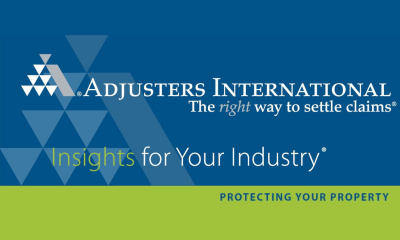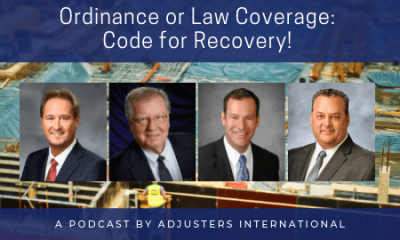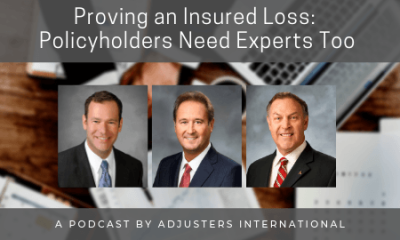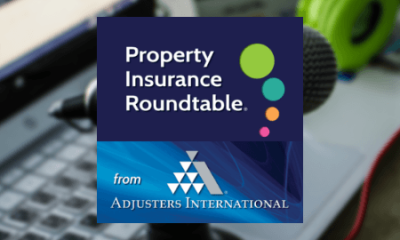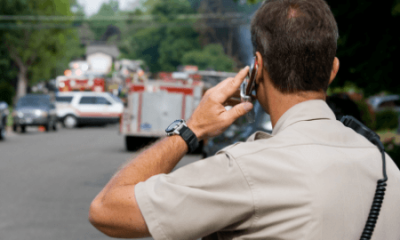Post-Disaster Scams: Don't Suffer Twice from the Same Disaster
It is a sad but unfortunate truth: after a disaster strikes, people running post-disaster scams come out of the woodwork to pry on vulnerable victims. Scammers spare no profession in their ploys. They claim to be contractors, public adjusters, attorneys, FEMA inspectors, government workers and even from charitable organizations.
As a general rule, you should never disclose personal information (such as your Social Security number, driver’s license number or insurance policy information) to anyone until their credentials are verified.
Contractors
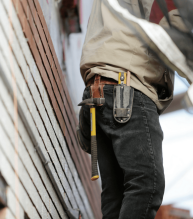 After a major storm, there can be extensive residential and commercial property damage. Individuals running post-disaster scams pose as licensed and/or reputable contractors in order to obtain a job, request payment and then leave the area, never to be seen again. A licensed contractor provides additional legitimacy, but it does not necessarily mean that they are reputable. And then there are those with good intentions who just simply take on too many jobs at once and do not have the resources to complete them as promised.
After a major storm, there can be extensive residential and commercial property damage. Individuals running post-disaster scams pose as licensed and/or reputable contractors in order to obtain a job, request payment and then leave the area, never to be seen again. A licensed contractor provides additional legitimacy, but it does not necessarily mean that they are reputable. And then there are those with good intentions who just simply take on too many jobs at once and do not have the resources to complete them as promised.
Conduct research before hiring an individual to find out if they are registered to do business in the state. The Better Business Bureau can also be used to identify any complaints received about a contractor or their business. Endorsed contractors can be found on the National Association of State Contractors Licensing Agencies website under their licensing resource section.
After hiring a contractor, have a written contract specifying the job, expectations, deadlines, materials and associated costs. A contractor should never require that the entire job be paid up front, if so, this is a huge red flag. A reasonable initial payment may be required to help purchase materials and for labor costs to begin the project. But overall, it should not be paid for in full until the work is complete in its entirety. This ensures that the scope of work was carried out as agreed upon and that they will not 'take your money and run.'
Be suspicious of any contractor who says that they can also handle the details of your insurance claim for you.
"Insured property damage claims should have one person handling the claim, and another person performing the repair and construction work. Be wary of contractors who claim they can do both. A contractor should not be adjusting your claim as that would be a conflict of interest and could be illegal unless the contractor was licensed as a public adjuster. The contractor would then be settling your claim to cover his/her bill. A contractor should not be profiting in any other aspect of the claim besides the repairs and construction, and in many states, it is illegal for them to provide both services."
Greg Raab
Director of Operations & Treasurer/Director of NAPIA
Public Adjuster/Attorneys
Public adjusters and attorneys can be hired to assist the policyholder with their property insurance claim. Oftentimes, insurance claims involve extraordinary documentation. A public adjuster serves on the behalf of the insured as their advocate to the insurance company, typically helping the property owner receive a larger settlement than if they had tried to settle the claim themselves.
Be wary of anyone who promises a quick settlement. Insurance claims following a major disaster are time-intensive to file — there is no way to receive a payout without going through the proper channels and procedures first. Attorneys must be registered with their state Bar Association, and in most states public adjusters must be licensed with the state's Department of Insurance. Public adjusters can also be verified through their involvement with professional public adjusting organizations such as NAPIA. NAPIA is an organization that focuses on advocacy for the policyholder to protect them from unlawful and unscrupulous acts. Its members must be licensed and agree to adhere to a strict code of professional conduct and ethics.
FEMA
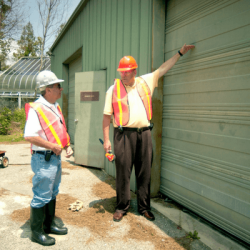 The Federal Emergency Management Agency (FEMA) representatives may be on location after a disaster strikes. Their job is to assess the damages caused by the storm to see if it qualifies for federal aid. It is important to note that all government workers carry and wear identifiable badges with a photo ID.
The Federal Emergency Management Agency (FEMA) representatives may be on location after a disaster strikes. Their job is to assess the damages caused by the storm to see if it qualifies for federal aid. It is important to note that all government workers carry and wear identifiable badges with a photo ID.
If you are applying for FEMA disaster assistance, there is no fee. There is also no fee required for FEMA or U.S. Small Business Administration property damage inspections. If someone is asking you for money up front, be wary as all of these services are free.
To inquire about a FEMA Inspector or government worker, contact the FEMA Disaster Fraud Hotline at 866-720-5721, local law enforcement, or your state's Attorney General’s office.
Charitable Organizations
After a major disaster, communities and individuals often want to help provide relief and aid to the affected locations. Many times, charities are set up where people can donate funds, clothing, food, services and more. Before donating to any particular cause, it is important to confirm that the charity is legitimate. Con artists have been known to try to piggyback off of a reputable charity by copying their name or having one very similar to it, hoping those trying to help will not recognize the minute differences. Any authentic charity will be able to provide proof that your donation is tax deductible and can be found on the Better Business Bureau’s list of reputable charities.
A search for 'scam artists following hurricane' will reveal numerous news articles from hurricanes Sandy, Irene, Katrina, Rita and more. It is inevitable that certain people will use a disaster and its victims to their monetary advantage. However, being on alert for these individuals and businesses can help you make a wiser decision in the hiring process. You have already suffered one disaster and do not need to be prey to the old saying "it is going to get worse before it gets better." Be aware of these individuals and their tactics, do not hesitate to question them and always do your research before hiring.
Listen to our podcast on “The Unauthorized Practice of Public Adjusting (UPPA): Affecting Insurance Companies and Policyholders Alike”

